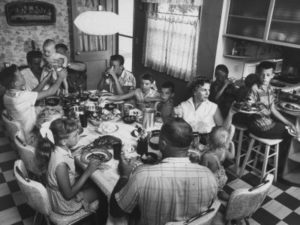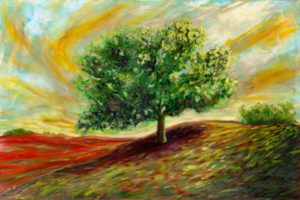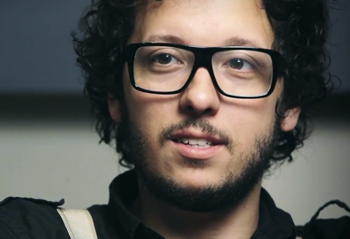I have lost most of my exclusionary tendancies towards people within the church–especially around the Lord’s table. So having read the Nashville Statement, written as a defense of traditional Biblical interpretation against LBGT behavior, I recognize within it a language I’m increasingly finding foreign. My question to the church is this, “But what are you willing to do to reach them?” Obviously holding the LBGT community off at arms distance isn’t working. It’s fostered hostility from both sides. Here’s my thinking; If holiness looks like a church having no simblance, stain, appearance, or apparition of brokenness, then no church is holy. When did the appearance of holiness become the mission for the church? It isn’t. It’s to minister the power of Jesus’s love and grace and mercy to those who feel unworthy or disqualified or marginalized. Which causes me to take a different posture. I would suggest the church recover the example of Jesus, who having dined with the prostitues, thieves, and men and woman of all manner of social “unholiness”, received direct and pointed criticism that he was too close to sinners.
“And as Jesus reclined at table in the house, behold, many tax collectors and sinners came and were reeling in with Jesus and his disciples. And when the Pharisees saw this, they said to his disciples, ‘Why does your teacher eat with tax collectors and sinners?’ but when he heard of it, he said, ‘Those who are well have no need of a physician, but those who are sick. Go and learn what this means, ‘I desire mercy, and not sacrifice.’ For I came not to call the righteous, but sinners.” Matthew 9:10-13 (ESV)
God was being accused of hobbnobbing with sinners too much. Just sit with that for awhile. Jesus dined with those who, according to Old Testament law, should have been stoned to death for their behavior.
Fidelity to Scripture, at least in the way Evangelical churches have defined fidelity for the last 50 years, is not a fidelity to the God we find revealed in Jesus Christ. It has not been faithful to Patristic teachings. It has not been faithful to the historic Church. It has not been faithful to one of the central themes of Christianity; that of being with the “least of these.” I know there is imagery of the church being white and blameless at the the coming of Jesus (which for me is a humorous double entendres especially here in my context of rural Ralls County, Missouri). I get that. But Jesus laid down his claim to whiteness (ahem…) and blamelessness in order to go and be present to the very people who were excluded and barred from the religious order of the day. The white linen of His garments were stained with the soil of people’s lives and circumstances. And it bothered Him none.
I would pray that churches open up space for those whom they deem are wholly unlike them. And for that to happen in a meaningful way, means that categorization needs to stop. And how this looks is specific to each community of faith. For the small mostly fundamentalist churches in my rural area, it must mean they practice recognizing the image of God in every person. It may mean, when they see someone that they harbor resentment towards, they speak a mantra to themselves, “they were worth Jesus dying for, too.” It may mean intentionally befriending someone who they considered to be “other” and sharing a meal with them. It may mean that as a subversive act against all our Ralls County “whiteness” and “rightness”, we intentionally make a friend of a black person, gay person, a muslim, or–and hold on to your seat–a Democrat. And if it starts in our life in small ways, it spills in to our faith communities in small and subtle, yet formative and beautiful ways.
I’ll take my cues from Jesus.
“But he said to him, “A man once gave a great banquet and invited many. And at the time for the banquet he sent his servant[a] to say to those who had been invited, ‘Come, for everything is now ready.’ But they all alike began to make excuses. The first said to him, ‘I have bought a field, and I must go out and see it. Please have me excused.’ And another said, ‘I have bought five yoke of oxen, and I go to examine them. Please have me excused.’ And another said, ‘I have married a wife, and therefore I cannot come.’ So the servant came and reported these things to his master. Then the master of the house became angry and said to his servant, ‘Go out quickly to the streets and lanes of the city, and bring in the poor and crippled and blind and lame.’ And the servant said, ‘Sir, what you commanded has been done, and still there is room.’ And the master said to the servant, ‘Go out to the highways and hedges and compel people to come in, that my house may be filled.” Luke 14:16-24
But back to the Nashville Statement.
There’s plenty of room at the banquet table–the table where we all come to eat of the body and blood of Jesus Christ to be formed by the power of the Holy Spirit. The questions the Evangelical church must wrestle within their community is this; How do we balance faithfulness to Scripture with faithfulness to the community around us? If they aren’t held together with wisdom and love, we get things like the Nashville Statement and other defensive postures that utterly cripples the Church from being faithful to the mission of Christ. If faithfulness to Scripture looks like exclusion of a people group, then I’m curious that if on the day of Judgement we will be condemned for a lack of faithfulness to the letter of the law or–and this is what I see in the teachings of Jesus–that we will be condemned for not entering into the lives of those around us–regardless of sexual preference or gender identity–with compassion and mercy.
Even as I type these words, my heart feels torn, because I don’t think I’ve captured it. I’m still saying words like, “‘we’ need to be more with ‘them.'” And I fear it just propagates an “us” verses “them” posture which is exactly the problem. Because the reality is, and this may be what Jesus was trying to get at, “We are ‘them.'”








